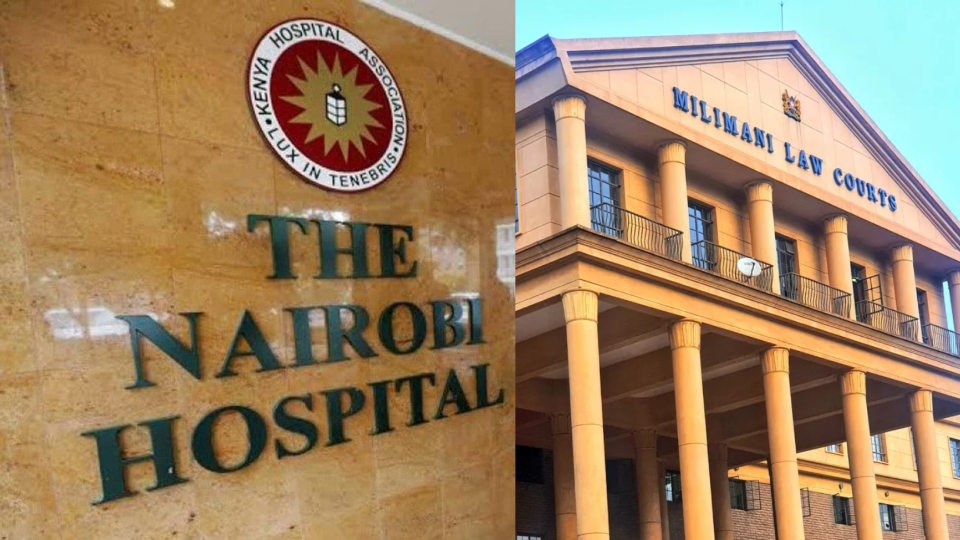High Court Halts DCI Actions Against Nairobi Hospital Leaders Amid Internal Disputes
In a significant development, the High Court in Nairobi has issued interim orders preventing the Directorate of Criminal Investigations from summoning or interfering with officials at The Nairobi Hospital during ongoing leadership conflicts. The ruling came from Justice Nixon Sifuna at the Milimani High Court, following an urgent application submitted on August 28, 2025, by the Kenya Hospital Association, which oversees the hospital's operations.
The association expressed worries that investigators were calling in officials and witnesses regarding issues already under judicial review. Justice Sifuna instructed that the application must be served to the relevant parties right away, with any responses due within four days. He also permitted the applicants to submit additional affidavits if needed.
The court's directive specifically prohibits the DCI, including its director and all subordinate officers, from summoning, threatening, questioning, detaining, or otherwise disrupting the peace and freedom of individuals who are parties or witnesses in the case. This injunction remains in place until the application is fully heard and decided. Additionally, the judge suspended recent summons issued to key hospital figures, such as Dr. Obwaka, Dr. Otieno, and Prof. Manyora, pending further court instructions.
Justice Sifuna further mandated that these orders be delivered to the DCI director, the Inspector General of Police, and the officers responsible for the disputed summons to ensure adherence. The case is set for a mention on September 23, 2025, to verify compliance and provide additional guidance.
This ruling follows a separate High Court decision by Justice John Chigiti, which paused an active investigation into the hospital. That order blocked a multi-agency team, headed by the DCI, from continuing their inquiry that began with a raid on the facility last Friday. The hospital's management highlighted that officers had removed documents and equipment holding sensitive patient information, sparking fears of privacy violations and breaches of confidentiality rights.
In that instance, the court ordered the unfreezing of bank accounts belonging to 12 board members, along with their mobile money accounts. A Kibera court also provided these board members with anticipatory bail of Sh100,000 each, preventing their arrest or detention while allowing investigations into any potential criminal activities to proceed without immediate custody.
The probes stem from internal leadership tensions at the hospital. Detectives, accompanied by officials from the Kenya Revenue Authority, conducted searches at the homes and offices of 14 hospital managers, seizing various documents. The investigations appear tied to disputes over the hospital's board composition and management from 2019 onward, with demands for records on membership and governance.
Lawyers for the hospital argued that the actions were unreasonable, especially given the short timeframe to compile extensive documents. They contended that the inquiries seemed aimed at undermining the current board rather than genuinely enforcing criminal laws, particularly amid existing civil disputes. The seizures included items with confidential patient data and privileged communications, potentially violating health regulations and exposing patients to risks. For example, several doctors reported difficulties in communicating with their teams, which could endanger patient care.
Meanwhile, the Attorney-General has petitioned the court to revoke the order blocking the DCI's involvement, asserting that the investigations are legitimate. The hospital has reaffirmed its commitment to legal compliance while prioritizing patient privacy protections under relevant data laws. It is collaborating with the Office of the Data Protection Commissioner and other bodies to address any risks arising from the seized materials.
These events unfold against a backdrop of broader scrutiny at the facility, including raids seeking evidence related to operational and financial matters. The leadership wrangles have drawn attention to governance challenges, with stakeholders emphasizing the need for resolution without compromising the hospital's critical services. As the cases progress, further details may emerge on the underlying conflicts and their implications for one of Kenya's prominent healthcare institutions.


